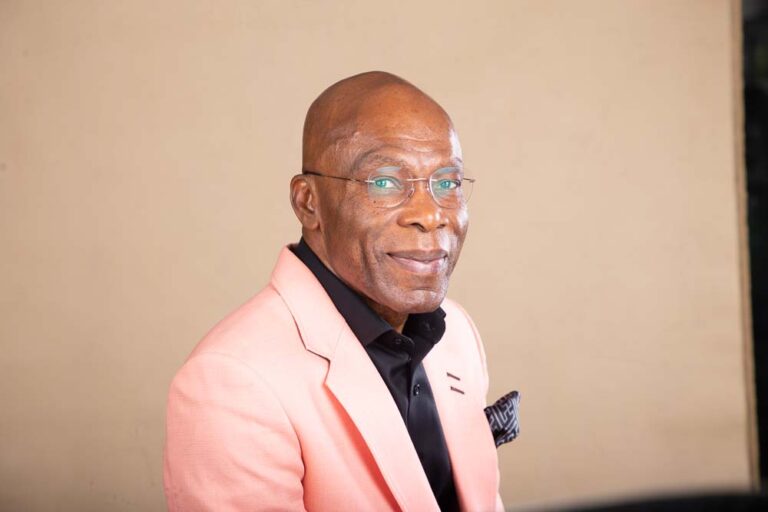In a compelling session with young business leaders in Ikoyi, Lagos, Dr. Leo Stan Ekeh, Africa’s most celebrated technology entrepreneur and Chairman of Zinox Group, laid out a powerful blueprint for entrepreneurial survival in Nigeria’s complex economic terrain.
Ekeh, widely regarded for revolutionizing Africa’s tech landscape, declared that navigating the Nigerian business environment requires more than just innovation—it demands a fusion of strategic depth, ethical leadership, and relentless resilience. To illustrate his point, he drew inspiration from three of Nigeria’s most prominent political figures—President Bola Ahmed Tinubu, Alhaji Atiku Abubakar, and Mr. Peter Obi.
The Composite Strength Every Nigerian Entrepreneur Needs
According to Ekeh, entrepreneurship in Nigeria is not for the faint-hearted. The terrain is marked by shifting policies, infrastructural deficits, regulatory ambiguities, and fierce competition. Surviving this terrain requires what he termed “composite strength”—a calculated combination of the leadership, boldness, moral clarity, and prudence represented by Tinubu, Atiku, and Obi.
“It takes the courage and strategy of Tinubu, the fairness and persistence of Atiku, and the morality and thrift of Obi to truly thrive in this market,” Ekeh stated.
Tinubu: Strategic Resilience and Defiant Leadership
Ekeh recalled Tinubu’s historic political resilience as the only opposition governor to withstand the 2003 PDP landslide. That political durability, he argued, mirrors the type of mental fortitude entrepreneurs must develop.
“Tinubu’s bold declaration—‘Emi lo kan’—symbolizes the audacity and preparedness entrepreneurs must display, regardless of their starting point,” he said.
He highlighted how Tinubu’s ability to forge alliances, seize opportunities, and execute long-term strategies enabled his political victories—and how similar capabilities are vital for building a scalable business in Nigeria.
Atiku: Persistence in the Face of Institutional Resistance
Turning to Atiku Abubakar, Ekeh commended the former Vice President’s tenacity and courage in challenging established systems, even when it meant confronting the federal government.
“Entrepreneurs must adopt this same grit—especially when dealing with stifling bureaucracy or unfair regulatory frameworks,” he said.
He likened Atiku’s vow to fight for democracy as long as he breathes to the entrepreneurial spirit required to navigate obstacles, remain committed, and pursue reform in a hostile business environment.
Obi: Moral Leadership, Ethical Spending, and Spiritual Balance
On Peter Obi, Ekeh emphasized the importance of financial prudence and humility, qualities that set Obi apart from conventional political norms.
“Obi drastically cut the cost of governance while delivering outstanding results. Entrepreneurs must learn the line between stinginess and resourceful thriftiness,” he said.
He also stressed the significance of spirituality and morality, asserting that credibility and ethical integrity are currencies that can build or break a company’s reputation.
“A business that earns trust becomes credit-worthy. In volatile markets like Nigeria’s, this kind of integrity is invaluable.”
Ekeh’s Personal Testament: Sacrifice, Blackmail, and Belief
Sharing his own experience, Ekeh revealed that building a digital economy in Nigeria came with persistent attacks, falsehoods, and blackmail, yet he endured—guided by the same integrated strength he now preaches.
“Success attracts both friends and foes. The road is not easy, but it is rewarding if approached with clarity, courage, and ethical conviction.”
From pioneering digital publishing to launching Nigeria’s first internationally certified computer brand, and establishing the Zinox Group, Ekeh exemplifies the strength he advocates.
A Practical Survival Strategy, Not Just a Metaphor
Dr. Ekeh concluded by stating that this combined strength is not symbolic—it’s strategic. In a nation where mediocrity is punished and agility is non-negotiable, only entrepreneurs who are tacticians, reformers, and moral visionaries will endure.
“Nigeria is one of the hardest yet most rewarding places to do business. But if entrepreneurs can harness these traits, they will not just survive—they will thrive.”
Final Word
Ekeh’s message is clear: Nigeria’s business terrain is a battleground of complexities, but within it lies boundless opportunity. By modeling the strategic resilience of Tinubu, the principled courage of Atiku, and the ethical stewardship of Obi, Nigerian entrepreneurs can position themselves to lead responsibly, scale sustainably, and create lasting impact.

